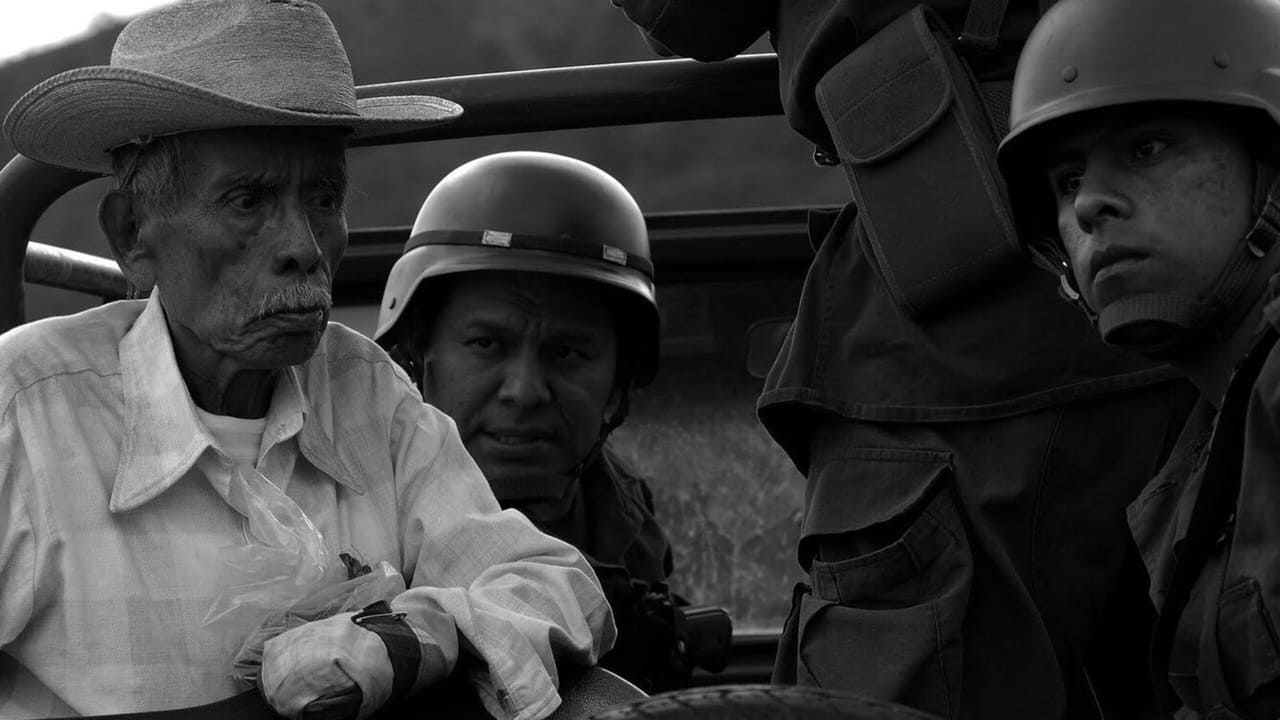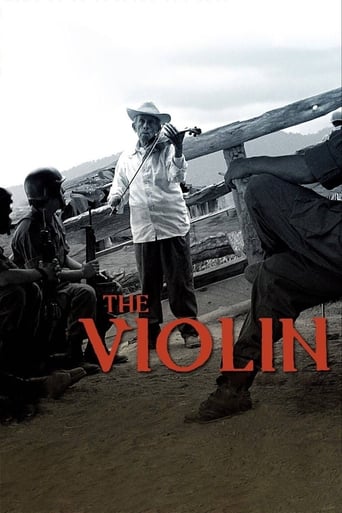

This is a tender, generous movie that likes its characters and presents them as real people, full of flaws and strengths.
... View MoreI saw this movie before reading any reviews, and I thought it was very funny. I was very surprised to see the overwhelmingly negative reviews this film received from critics.
... View MoreIt really made me laugh, but for some moments I was tearing up because I could relate so much.
... View MoreThrough painfully honest and emotional moments, the movie becomes irresistibly relatable
... View MoreIn an unnamed Latin-American country, a loosely organized peasant rebellion struggles against an oppressive government army. The Mexican film "El Violin" doesn't really get more specific than that in terms of where or when the story takes place. When government forces invade a rebel village, they force the villagers to leave behind a secret ammo stash. While soldiers camp out in the captured village, Genaro (Gerardo Taracena) and his desperate rebels try to figure out a way to get to their munitions. Genaro's elderly father, a one-handed violinist and farmer, takes it upon himself to solve the problem.If I thought the violin might be a fun, lighthearted story, I was completely wrong. The movie opens with a brutal scene of torture, and while the mood occasionally lightens a bit, it generally remains grim. The film never makes it clear what the rebels are fighting against; I guess "oppression" in general. It doesn't really matter. The theme is how the spirit of freedom and rebellion lives on, passed from generation to generation. There is also an exploration of how people might be different given different circumstances. The army captain is a brutal man of war, but he discovers a belated interest in music under the tutelage of the old violinist. I watched "El Violin" largely as part of my Spanish-language study. On its merits as a film, I would say it is a bit too naturalistic for me. It is a well-told story, however, with excellent performances and some beautiful footage of the Mexican countryside. For a viewer who won't mind the pervasive grimness of the tale, it is worth checking out.
... View MoreWhat a great story and film. The acting and casting were flawless. The camera work, a little iffy at times didn't really distract much. I can't help but wonder why great films like this are seen by relatively few people and seldomly make their money back. I really liked the thoughtfulness and attention to detail i.e. the mule intuitively showing up and then again wanting to avoid the approaching soldiers. The plot line thread of the checkpoint guard, who risked his life by supplying guns to the rebel peasants was thoughtful and provocative.This film really captured the humbleness, heart-felt-ness, and basic goodness of simple salt-of-the-earth people ultimately betrayed only by their trust and naivety. Michael Germaine
... View MoreMy hat's off to this little,but powerful film from Mexico. 'El Violin' (or as it's being called in it's U.S. release,'The Violin')is a powerful political potboiler about an unnamed Latin American village, being bullied by government troops (sound only too familiar?),against an elderly musician,minus one hand, who still manages to play violin by tying the bow to the stump of his missing hand. This film is being compared to Ken Loach's 'The Wind That Shakes The Barley', but reminds me more of certain unpleasant events that took place in Central America back in the 1980's (does El Salvador strike a familiar chord?). The film is shot in black & white, giving it a look that may remind you of some of the classic Italian dramas (post realist) of post WWII (hint: DeSica's 'Bitter Grapes'). Although the film was completed in 2005, it is just now getting something resembling distribution. A film that is well worth seeking out.
... View MoreImagine that you look like a grandfather in real life. Imagine that your right palm has been amputated but you play a violin with a bow strapped to the maimed arm. Imagine a director wanting to use you as a lead actor in a feature film. Imagine you win a Cannes Film Festival Best Actor prize for the "Un Certain Regard" section of the festival for the role. It's not a dream--it happened to Mexican actor Don Angel Tavira in the Mexican film "El Violin" or the Violin, directed by Francisco Vargas.I caught up with this film at the on-going International Film Festival of Kerala, India, where it won the Silver Crow Pheasant, an award for the best competition entry chosen by the delegates (in contrast to the jury). The award was bestowed on the basis of votes from 6200 delegates attending the festival.I do not know how Tavira lost his palm but I learned that the director made the film keeping the future actor in mind. Tavira looks like Charles Vanel in his later years. He exudes a sincerity that touches the viewer and is not easily forgettable. He mixes sincerity with the wizened touch of an old fox.The film is similar to Irish filmmaker Ken Loach's "The wind that shakes the barley" in many ways. Only "The violin" is shot in black and white while Ken Loach shot his film in lush color. The photography is in no way amateurish. Both films are about the poor fighting mighty oppressors--in the case of "El Violin" poor villagers fighting a cruel Mexican army.Finer points of the film include a marvelous dialog between grandfather and grandson that speaks highly of the director screenplay writer's Vargas' writing capability. Yet he has only made four films.As one might have guessed the violin case and violin player are key to the development of the film. Music is a great leveler--the brutes and the aesthetes both appreciate good music.Vargas choice to film in black and white is commendable. The violence and rape that launches the film is not extended into the film as other directors would have been tempted to do. Interestingly the strength of the film is that it does not show violence at later stages--something that Ken Loach could not restrain himself from. Violence for Vargas is not gratuitous--it is to provide the focal point. The rest of the violence is only for the viewer to imagine. Now that's good cinema.This time Vargas had a great actor. Can he make equally good films without such innate talent of Don Tavira? My guess is that he can repeat this feat with others too. Vargas has an eye for talent, for good photography and a flair for good scriptwriting.
... View More